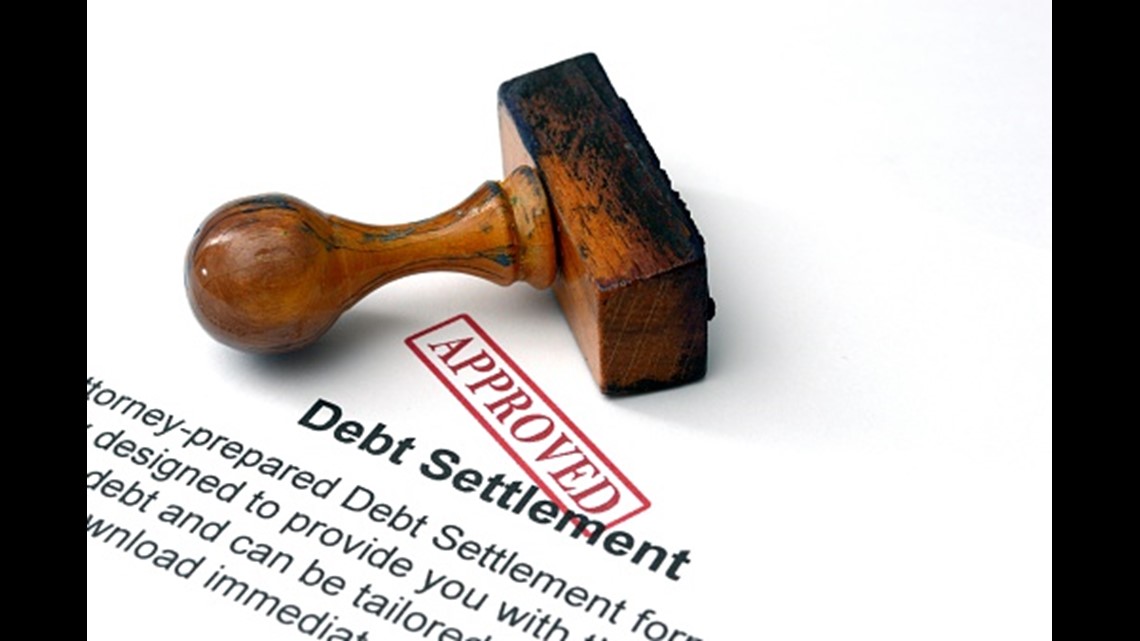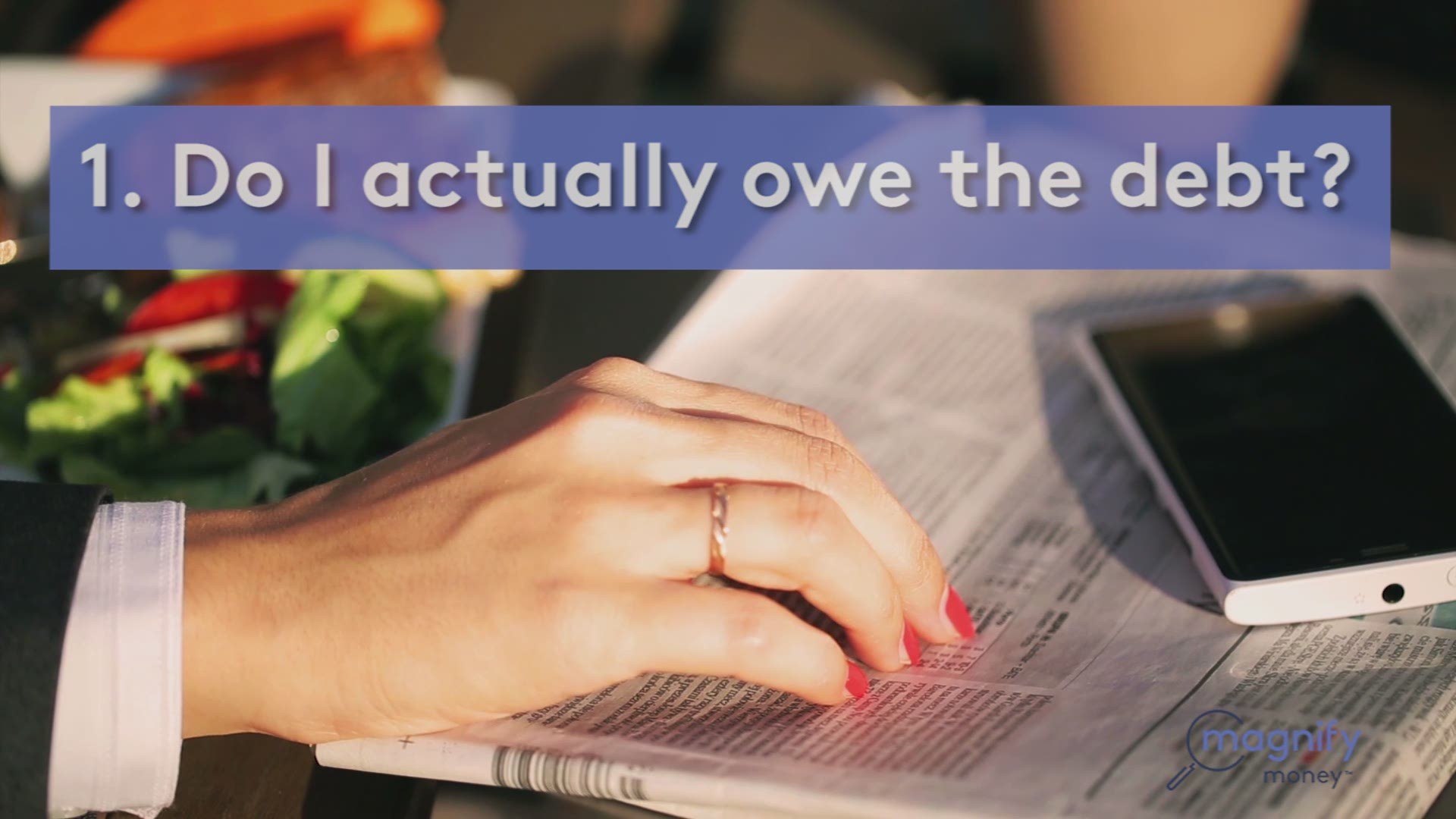When you become seriously delinquent on a debt, and lenders are unable to collect payment through normal channels, they may file a lawsuit against you to recoup the debt.
If you’re sued by a credit card company, you’ve still got options. In fact, you may be able to settle your debts and escape a lawsuit even if the lender has already filed a claim in court against you, says consumer debt expert Michael Bovee.
But the clock is ticking. If you don’t respond to a lawsuit, you almost always lose. A court can automatically side with the lender, and the lender can use that court order to have your wages or even federal benefits like Social Security income garnished.
“You have a few weeks to get informed about your options,” Bovee told MagnifyMoney. “Spend time looking at how you can gather funds to pay a settlement for less than what you owe. If you cannot conceivably resolve the debt through settlement, even if buying time through the court process, connect with a bankruptcy attorney and discuss your options there.”
Here are some questions to ask if you are sued by a credit card company.
1. Do I actually owe the debt?
Before accepting the lawsuit on its face or acknowledging the debt as yours, take the time to examine the debt itself. Lenders make mistakes, and because debt is often bought and sold, it’s not impossible that the amount of debt might be wrong or that you may not be the proper owner at all. In another increasingly common scenario, you might be the victim of identity theft.
To verify that a debt belongs to you, send a debt verification letter to your lender or debt collector. You can download a sample form here from the Consumer Financial Protection Bureau. Once the company responds to your letter, you have 30 days to dispute the debt, which you should do in writing.
If the debt is yours, you still have options.
2. Is the lawsuit timely?
Companies only have a certain window of time in which to sue you for unpaid debts. They cannot bring a lawsuit against you outside of that time frame. Each state’s statute of limitations is different, so you will first need to find out what the statute of limitations is for your state. Most states have a statute of limitations of at least three years if not longer. The lawsuit must be filed before the end of the statute of limitations to be valid.
But that doesn't’ mean lenders can’t continue to contact you to try to collect on older debts. And you should be careful here. If you make even a small payment on a debt that has passed the statute of limitations in your state, you can reset the clock and give the company another chance to sue you. Consult an attorney for guidance before you make payments on an older debt.
“When it comes to statutes of limitations, it is important to not make any communications that could be construed as acknowledging the debt or it can revive the debt and start the clock all over again,” warns Anna S. Richardson, a consumer attorney based in Boston, Mass.
3. Can I settle the debt for a smaller amount?
Lawsuits can be expensive, which is why most credit card companies and debt collectors are usually willing to settle the debt for a percentage of what is owed. How low they are willing to go depends on several factors, including the age of the debt or whether the debt was the result of a balance transfer.
Keep reasonable expectations for a settlement. You may be able to settle for anywhere from 35% to 60% of the balance owed, Bovee says. You can try to negotiate and settle the debt yourself or enlist the services of an attorney.


4. Can I receive a settlement agreement?
If you settle, you can negotiate to pay either a lump sum or start a payment plan. Either way, it is crucial to make sure any settlement agreement is documented and states that the lawsuit will be dismissed and the account marked will be marked as paid.
You’ll also want to make sure that in the documentation of the settlement that it is not reported to the credit bureaus as a charge-off, as this could hurt your credit. Do not consider the matter settled until you have it in writing.
Checklist for The Perfect Debt Settlement Agreement
● The creditor and/or debt collector’s name.
● The date the letter was prepared.
● Your name.
● The account number associated with the debt.
● The amount that is being agreed to for the settlement
● Terms and amounts of payments to be made
○ Lump sum?
○ Monthly payments?
● Deadlines for any payments due.
● A statement that the account has been settled/satisfied and paid in full
Tax Alert:
Sometimes forgiven debt can be taxed as if it were earned income. If you had more than $600 worth of debt forgiven, you should receive a 1099-C form from the company.
5. Do I need professional help?
If your situation is complicated or you simply need professional guidance, be sure you’re looking for help in the right places.
You may be tempted by the many offers of debt relief services. They may promise to be able to get debt collectors off your back or negotiate with lenders to settle your debts. But they often charge fees themselves, and the industry is wrought with scams.
In fact, some lenders and debt collectors refuse to even work with debt relief firms and prefer to work with consumers directly. So at the very least you should ask your lender or debt collector if they are willing to work with a debt relief firm before you hire them.
And keep in mind, you are fully capable of settling your debts for a lesser amount on your own — all you have to do is ask.
If you are looking for legal advice at a low cost, use resources like this list of legal aid services from the CFPB or contact the National Foundation for Credit Counseling.


What to Do If You Can’t Afford to Settle Unpaid Debts
Some people are in such dire financial straits that they can’t even afford to pay a reduced amount of debt.
Bankruptcy is certainly an option if you are unable to negotiate a settlement and it looks like you might end up having a judgment entered against you. The tricky part is that to get the best possible outcome when filing for bankruptcy, you need to have filed before a judgment is entered against you.
That means you do not want to wait too long before filing for bankruptcy. Remember, if you are sued by a debt collector or a lender for an unpaid debt and you do not act quickly, a court can easily rule against you and in favor of the plaintiff.
Make sure your bankruptcy attorney files a motion to avoid a judgment lien to prevent the lien from surviving bankruptcy discharge. Remember, filing for bankruptcy is just the first step; it does not automatically make all your debt go away. You will have to go through the bankruptcy process to have the debt discharged, and it will impact your credit for seven years.
If you are considering pursuing bankruptcy, a good place to start is with the National Foundation for Credit Counseling. It’s a nonprofit financial counseling organization that can help steer consumers in the right direction when they are considering bankruptcy.
The Bottom Line: Keep a clear head and ask for help
The hardest part of dealing with debt that has reached the point of a lawsuit is keeping a clear head and trying to not be emotional about the process. That is why it is a good idea to enlist the services of a professional, ideally an attorney.
While you don’t have to have an attorney to answer a lawsuit, attorneys are not only more knowledgeable about the litigation process but will help you to evaluate all your options and what is the best one to pursue given your individual situation. When you are in debt and being sued, you may be thinking that you can’t afford an attorney; however, many attorneys will at the very least offer a free consultation so you can better understand how hiring an attorney might help as well as how much it might cost.
The Consumer Financial Protection Bureau has some great resources on how you can find an attorney to help you.
MagnifyMoney is a price comparison and financial education website, founded by former bankers who use their knowledge of how the system works to help you save money.

